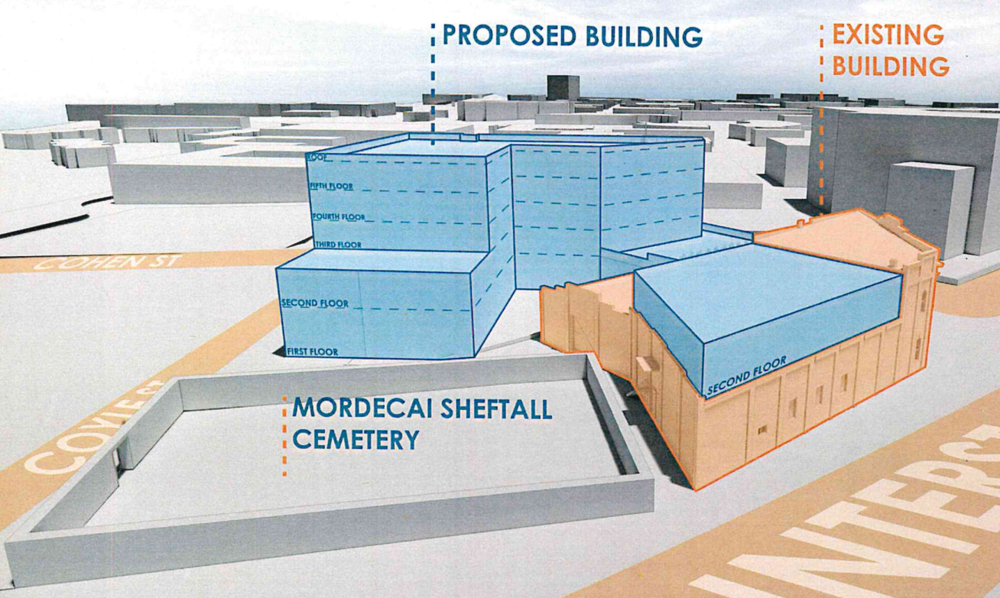
Caption
A rendering of the future Savannah Station Hotel near Interstate 16 west of downtown is shown in blue, with the orange building depicting the current Savannah Station event space. The Mordecai Sheftall Cemetery is directly adjacent. The Levi Sheftall Cemetery, not shown in the rendering, is located on the other side of Cohen Street.
Credit: Lynch Associates Architects

